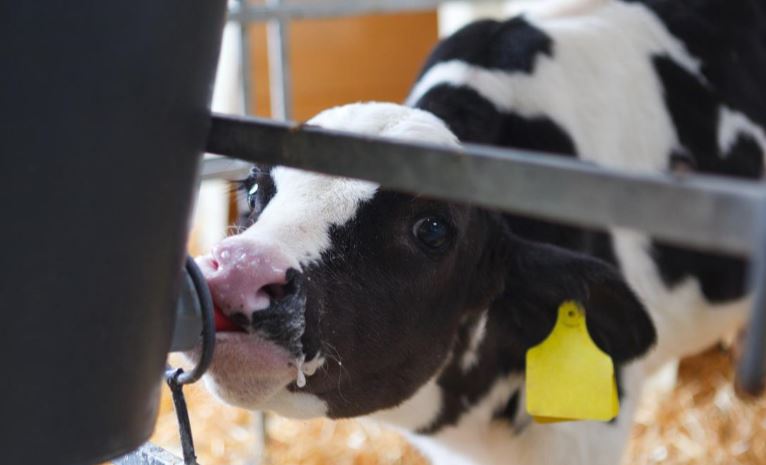Bord Bia has issued a number of additional calf welfare criteria to farmers as part of a wider update to the Sustainable Dairy Assurance Scheme (SDAS) for 2020.
The criteria, outlined in a letter that was sent to farmers last week, came into affect earlier this month on November 11.
Although many dairy farmers already adhere to the criteria outlined in the letter, the Irish Food Board has placed further emphasis on farmers’ obligation to meet these requirements on farms – which will ultimately form part of their SDAS audits.
- The on-farm slaughter of healthy calves is prohibited. This, it says, is “critical”;
- Calves must be offered free access to clean water from five days of age, or younger if they are being offered solid feed in addition to receiving milk or milk substitute;
- The calf’s naval must be appropriately treated with a suitable disinfectant as soon as possible after birth to avoid infection;
- Well-ventilated, draught-free housing must be provided for calves;
- Dry, comfortable bedding must be provided at all times;
- Calves must be looked after so that they are maintained in a healthy condition;
- Sick or injured calves must be treated appropriately without delay and where calves are not responding to the stock-person’s care then veterinary advice must be sought.
Outlining the basis for these seven additional requirements Bord Bia state: “The industry is facing increased scrutiny and societal challenges in areas of: climate change; water quality; biodiversity; and animal welfare.
Good animal welfare is consistently to the fore when consumers and consumers of Irish dairy are questioned on their primary concerns with regard to the products they choose to buy.
The letter also detailed that over the past number of months there has been an increased focus on the health and welfare of animals on dairy farms, particularly in relation calves.
This, it says, must “not be jeopardised”, despite many farm challenges on the ground, including the increasing number of “male calves with low economic value”.
“Bord Bia is taking its responsibility in relation to this challenge seriously and want to be in a position to respond to these challenges on welfare confidently on behalf of SDAS,” the correspondence added.
To demonstrate conformance with the new requirements, the letter stated that “auditors will now also be required to collect some additional information relating to cows calved and calf mortality”.
